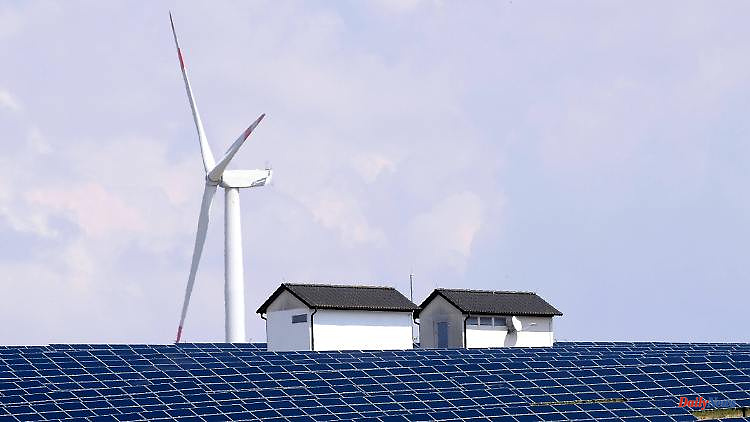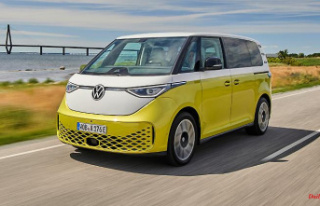Because green electricity is produced much more cheaply than electricity from gas, but prices are based on the latter, electricity producers from renewable energies are currently making high profits. They should now be skimmed off. According to the industry, however, this is hindering the desired expansion of renewables.
The federal government's plans to skim off high profits from electricity producers are met with skepticism in the green electricity industry. It is true that the government is addressing the upheavals on the energy markets and is looking for instruments for stabilization, said Wolfram Axthelm, Managing Director of the German Wind Energy Association. However, measures for this winter should not cause problems in the following winter. "Because it will be crucial to overcome the fossil energy crisis in the long term through a rapid expansion of renewable energies." Incentives for rapid investment in expansion should not be thwarted.
The green electricity providers are therefore appealing to politicians to use the planned skimming off of high profits only as a short-term measure in the fight against acute energy price inflation. In the medium to long term, one must ensure that generation from alternative sources in Germany makes more progress and is not burdened again by permanent interventions, said Silke Weyberg, Managing Director of the State Association for Renewable Energies (LEE) Lower Saxony/Bremen. "Of course, the industry doesn't want to be counted among the 'war profiteers' and faces up to its social responsibility," she said, explaining the drastic rise in energy prices as a result of the Ukraine war.
Operators of bioenergy, wind power or solar systems can also benefit from the overall rise in prices, as long as their production costs remain relatively low. "But we also have to ask ourselves the question: How do I use the dissipated profit shares later in order to achieve the transformation to an energy system that is cheaper in the long term?" Weyberg warned that the steps discussed should not lead to the conversion being "stalled" due to reduced investment opportunities.
Some improvements in the long-sluggish expansion of German wind power in particular were only just in sight when the Russian attack on Ukraine shook the industry at the end of February. "The question of how to pay for your energy costs affects us all," said the association representative. "But the costs of expanding renewables are now also increasing - for example for the material for new plants. This is an important point that we believe should be taken into account."
Bioenergy associations are calling for the different costs to be taken into account even within renewable energies. "In the last few months, the additional expenditure for bioenergy plants has also risen significantly," said Sandra Rostek, head of the capital's bioenergy office. In the first half of the year, renewable energy sources accounted for almost half of the electricity generated in Germany, at 48.5 percent. Wind (25.7 percent), sun (11.2 percent) and biogas (5.7 percent) had the largest shares.












